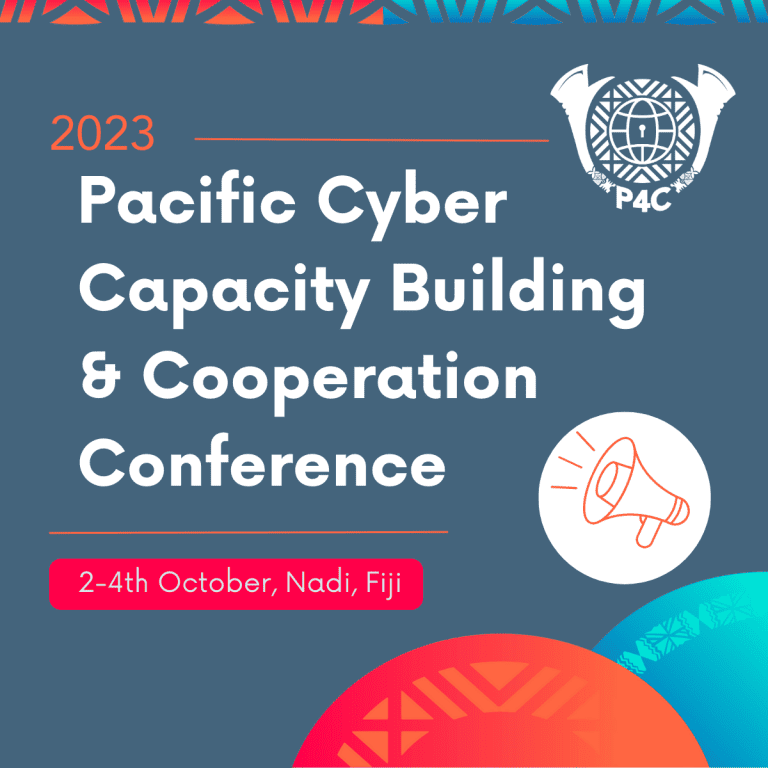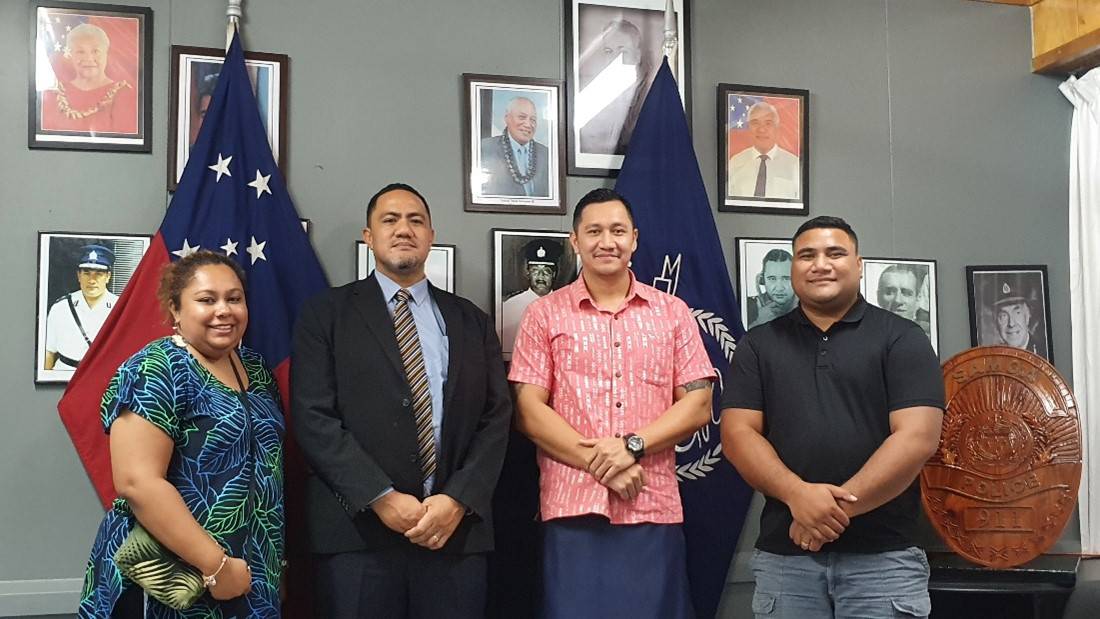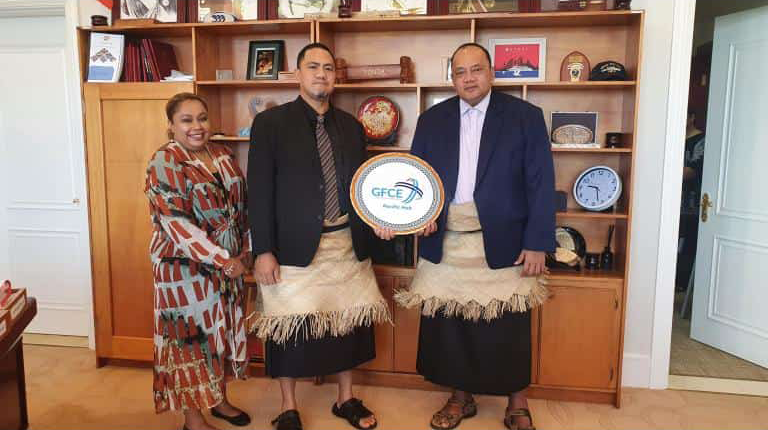Establishment of a Global Forum on Cyber Expertise Pacific Hub
Sponsor Ministry of Foreign Affairs and Trade (New Zealand Government) Duration September 2021 – March 2022 Project objectives Establishment of a GFCE Pacific Hub. Description
UK-GFCE Institution Building: Cyber Capacity Building
Sponsor UK Foreign, Commonwealth & Development Office Duration 1 April 2022 – 31 March 2024
Clearing House Coordinator/Global Partnerships Manager (UK FCDO)
Sponsor UK Foreign, Commonwealth & Development Office Related regions: Americas & Caribbean Europe Pacific Duration September 2021 – March 2022 Project objectives Description
GFCE-Australian support for enhancing cyber capacity building and regional coordination of efforts in the Pacific region
Sponsor Department of Foreign Affairs and Trade, Commonwealth of Australia Duration 10 June 2022-31 March 2024 (extended) Project objectives The project aims to further enhance the profile and engagement of Australia and the Pacific community in the upcoming Global Conference on Cyber Capacity Building (GC3B). Description Support for CCB stakeholders from the Pacific region to […]
GFCE-Australian support for the Women in International Security and Cyberspace (Women in Cyber) Fellowship Network
Sponsor Department of Foreign Affairs and Trade, Commonwealth of Australia Duration February 2022 – December 2024 Project objectives The Women in International Security and Cyberspace Fellowship program aims to ensure equal and effective representation of women diplomats from all regions in United Nations cyber negotiations. The program seeks to develop cyber governance capacities, providing access […]
Pacific regional meeting 2020
The GFCE Pacific Regional Meeting provided an opportunity for donors, project implementers and Pacific Island nations to discuss common goals, identify opportunities and challenges for cyber capacity building in the region. The meeting further provided an opportunity for the GFCE to listen and discuss ideas on how the GFCE could support future cyber capacity building […]
Stories from the Pacific – the human side of cyber incidents
The GFCE Pacific Hub organized a session at the Asia Pacific Regional Internet Governance Forum (APrIGF) 2023 titled “Stories from the Pacific – the human side of cyber incidents.” This session explored the impact of some cyber incidents, and discussed the challenges, risks and lessons learnt, with a particular focus on the human impact of […]
Webinar: Pioneering of Gender Empowerment in High-Level Cyber Talks
This virtual assembly drew together over 40 participants from both the Pacific and Southeast Asia regions to set in motion a dynamic dialogue centered around women’s empowerment, equality, and inclusivity in shaping high-level cyber discourses and policies. The webinar opened with keynote remarks presented by Mr. Allan Cabanlong, Director of the GFCE Southeast Asia Hub. […]
Pacific nations unite to address cybersecurity challenges

Friday 4 August 2023: Government representatives and cyber sector leaders from across the globe will unite at the inaugural Pacific Cyber Capacity Building and Coordination Conference (P4C) held from 2 – 4 October 2023. To be held in Nadi, Fiji, the P4C represents a new, coordinated approach to addressing and advancing cybersecurity capacity building (CCB) […]
GFCE Pacific Hub continues engagement efforts in Samoa

Written by: Cherie Lagakali, GFCE Pacific Cyber Senior Advisor Figure 1 Caption: (L-R) Fonoti Sakuma (SamCERT), Saia Vaipuna (GFCE Pacific Hub Director), Honorable Minister Toelupe Poumulinuku Onesome, Cherie Lagakali (GFCE Pacific Cyber Senior Advisor) The GFCE Pacific Hub team continues its community engagements and visiting of the different Pacific Island countries and this week are […]
The GFCE Pacific Hub team visits Tonga

The GFCE Pacific Hub team this week made a courtesy call to the Prime Minister of Tonga, Hon. Hu’akavameiliku as the Minister responsible for Digital Transformation and a champion of many cyber initiatives in the wider Pacific region. The GFCE Pacific Hub was represented by the Director, Mr. Siosaia Vaipuna who will be based In […]
The GFCE looks to the Pacific!
News Article | 27 October 2020 The GFCE has appointed Cherie Lagakali as the GFCE’s first Pacific Liaison. This role and appointment follows the GFCE’s first Pacific Regional Meeting, held in Melbourne in February 2020 and in the margins of the OCSC-GCSCC 2020 Global Cybersecurity Capacity Building Conference. The GFCE Pacific Regional Meeting provided an […]
GFCE Job Application: Pacific Liaison

News Item | 25 August 2020 The Global Forum on Cyber Expertise (GFCE) is looking to appoint a GFCE Pacific Liaison. This Liaison will look to scope, analyze, and recommend the design of a future GFCE Pacific Hub. The deadline for applications is 7 September 2020. Service Contract Remuneration The final fee for this service […]
